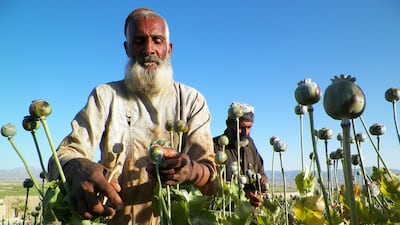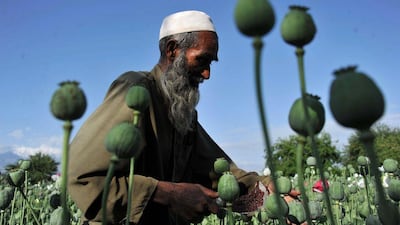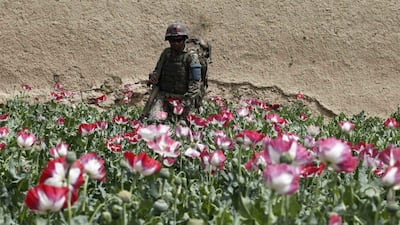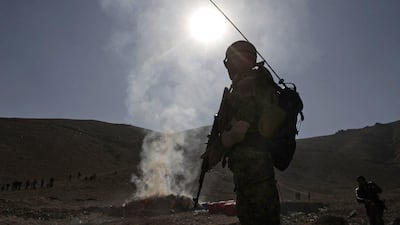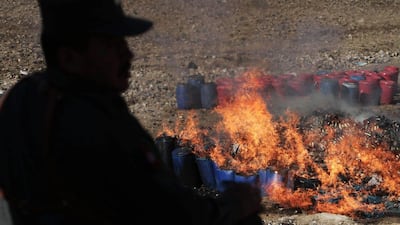Opium sellers Afghanistan have said prices for their product have soared since the Taliban returned to power.
Though the country’s economy is on the brink of collapse, drug dealers in the south of the country say the price of poppy resin has almost tripled.
Plunging his knife into a large plastic bag filled with four kilograms of what looks like brown mud, Amanullah, who asked to use a fake name, extracts a lump and places it in a small cup suspended over a portable stove. The resin quickly begins to boil and liquefy, an indication the opium is pure.
“It is haram [forbidden] in Islam, but we don’t have any other choice,” his partner, Masoom, said at the market, on the arid plains of Howz-e-Madad, Kandahar province.
Since the Taliban overran Kabul on August 15, the price for opium – which is refined into heroin in Afghanistan, Pakistan or Iran before flooding the European market – has more than tripled. Masoom said smugglers now pay him $100 per kilogram. In Europe, it has a street value of more than $50 a gram.
As he sat beneath a canvas screen suspended from four stakes to protect the wares from the sun, he said the price prior to the Taliban takeover stood at only a third of what he can make today.
Speaking on his field a few kilometres away, poppy farmer Zekria confirms that prices have shot up. He said his opium is more concentrated – and therefore of better quality – than that of Masoom and Amanullah because the flowers were picked at the start of the harvesting season.
He said he now makes more than $145 per kilogram, up from a little under $45 before the Taliban’s takeover.
Back at the market, hundreds of producers, vendors and buyers chat over green tea around sacks of opium and hashish, discussing the surging prices. The weather, insecurity, political unrest and border closures can all affect the opium price, but everyone seems to agree it was a single statement by Taliban spokesman Zabihullah Mujahid last month that made it take off.
At the time, he told the world the Taliban did not want to see “any narcotics produced” – but said international backing was needed to allow farmers to move away from the trade. The rumour that a ban on poppy growing was imminent spread through the province, a historical Taliban stronghold and the centre of the country’s opium production and drug trafficking.
Buyers are bracing for a shortage, “so the opium price is soaring”, Zekria said.
But the 40-year-old, who like his father and grandfather has spent much of his life growing poppies, said he did not believe the Taliban could end their cultivation in the country.
“We know it’s not good, but we don’t have enough water or seeds,” he said.
In 2000, during the hardliners’ last stint in power, the Taliban banned poppy growing, declaring it forbidden under Islam, and almost eradicated the crop. After their US-led removal in 2001, poppy farming proliferated, even as the West poured millions of dollars into pushing non-narcotic crops such as saffron.
Then, with the Taliban switching from ruling Afghanistan to insurgency against US-led forces, they relied on opium production to pay for their rebellion. In 2016, half of their revenue came from the trade, according to the UN.
Afghanistan’s opium production has since remained high year after year.
The UN says about 6,300 tonnes were produced last year alone. It estimates the trade is worth $2 billion in annual revenue in the country.
But like many farmers in the south, Masoom says it will never be eradicated.
“We cannot grow anything else right now.”
